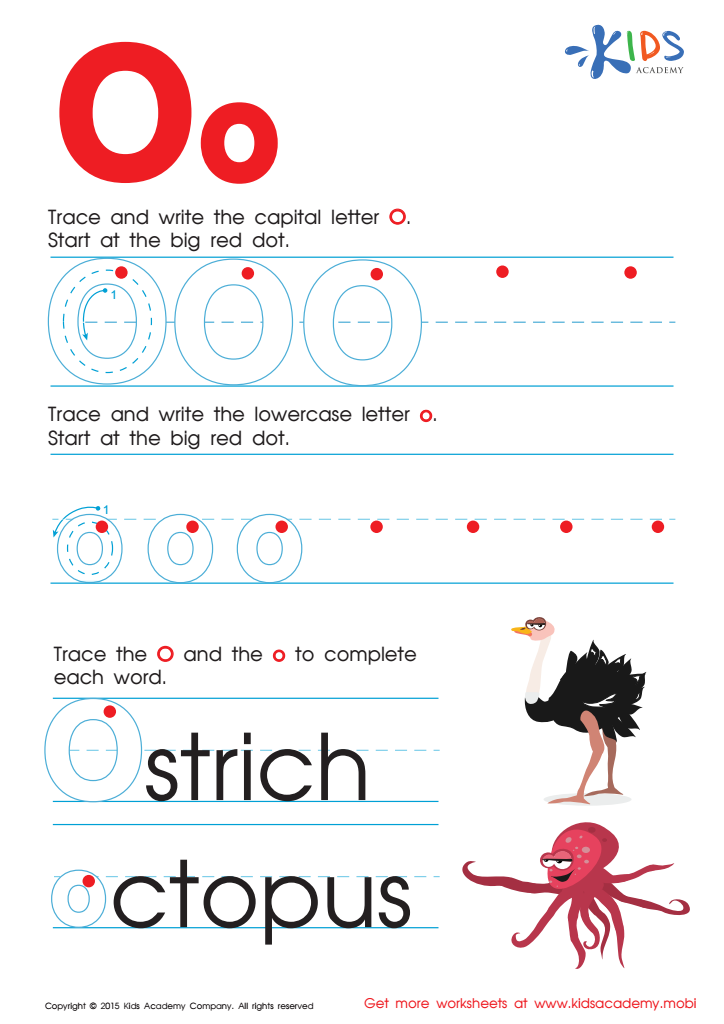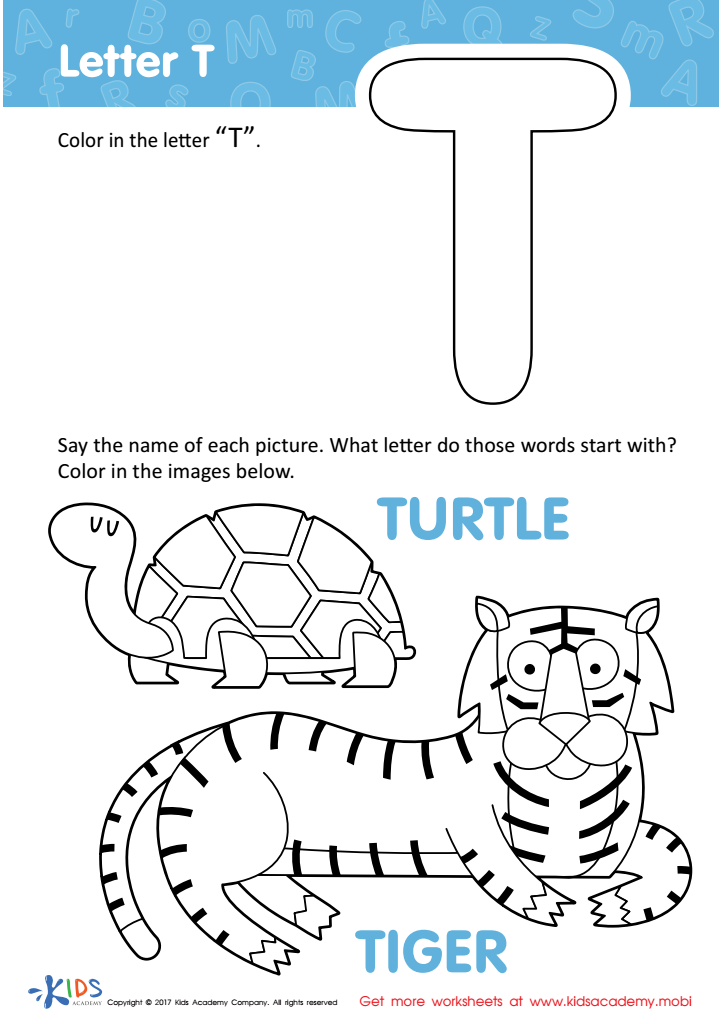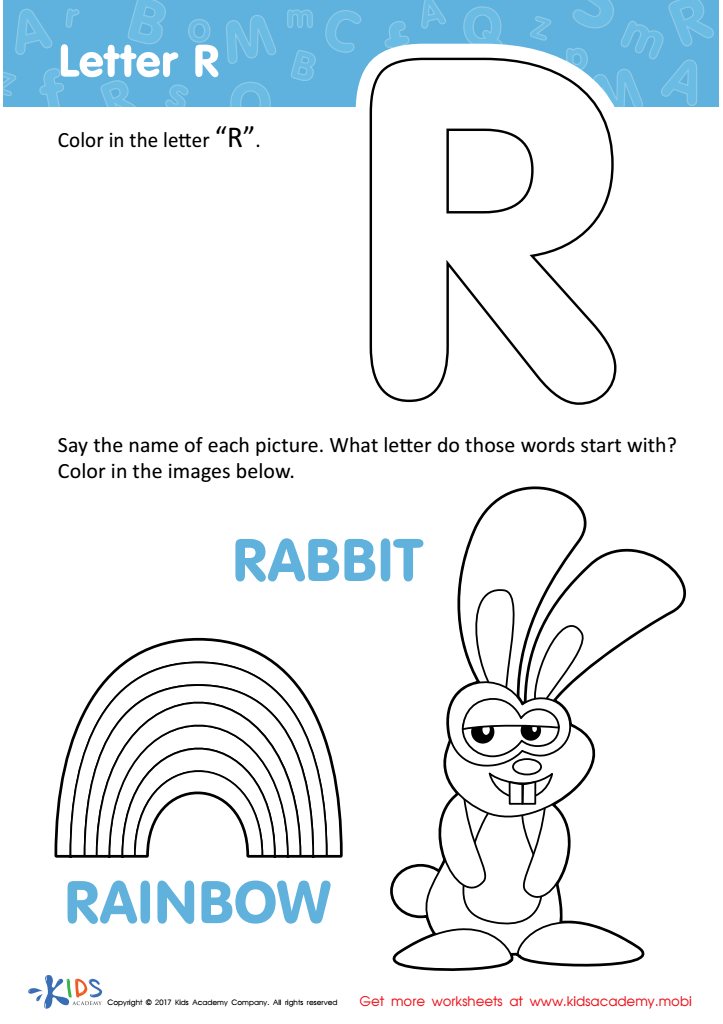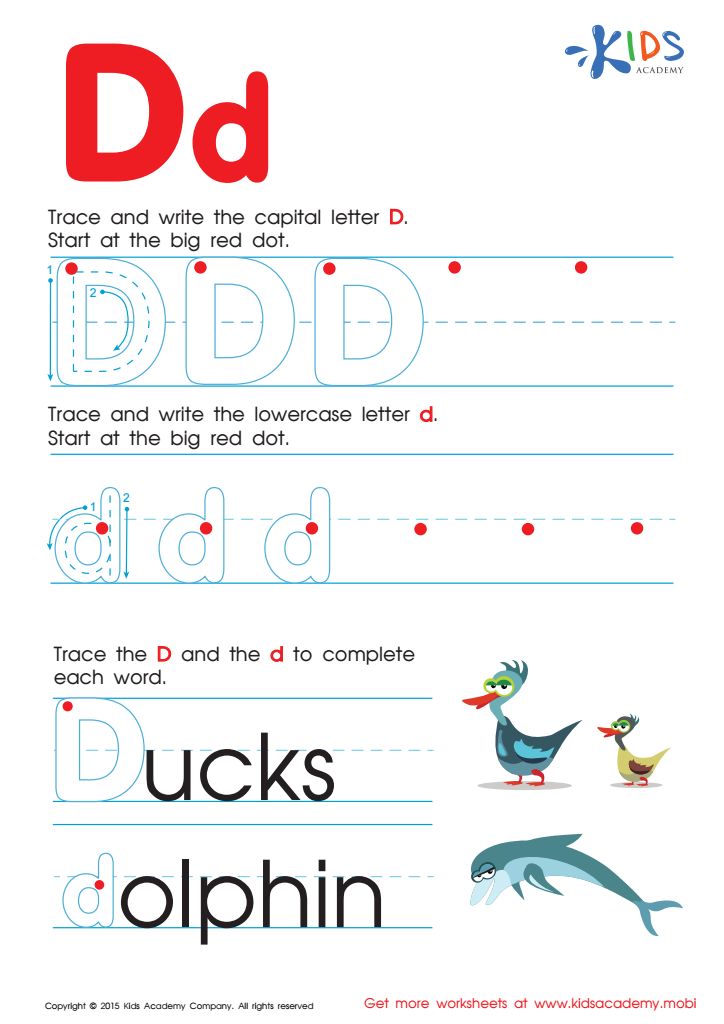Hand-eye Coordination Letter Recognition Worksheets for Ages 7-8
8 filtered results
-
From - To
Enhance your child's learning with our Hand-eye Coordination Letter Recognition Worksheets for ages 7-8. These expertly designed worksheets blend engaging activities with alphabet mastery, promoting both cognitive development and fine motor skills. Each worksheet features interactive tasks that challenge young minds and hands, fostering letter recognition, pencil control, and visual tracking. Ideal for boosting classroom or homeschool curriculums, our worksheets provide an enjoyable, effective way for children to develop essential literacy and hand-eye coordination skills. Discover a vibrant educational resource that makes learning fun and productive! Browse and download now at Kids Academy for endless alphabet adventures.


Letter A Tracing Page


Letter O Tracing Page


Letter P Tracing Page


Letter T Coloring Sheet


Letter H Tracing Page


Long Vowel Maze /o/ and /i/ Worksheet


Letter R Coloring Sheet


Letter D Tracing Page
Hand-eye coordination and letter recognition are fundamental skills for children aged 7-8, laying the groundwork for future academic and life success. These skills are crucial during early literacy development, as effective hand-eye coordination facilitates better handwriting and overall fine motor skills. When children can smoothly connect the movement of their hands with what their eyes see, they can write more legibly and comfortably, reducing frustration and encouraging more writing practice.
Letter recognition, on the other hand, is critical for reading proficiency. At ages 7-8, children transition from recognizing individual letters to understanding that these letters form words, sentences, and eventually stories. Being adept at identifying letters quickly allows them to read more fluidly, which enhances their comprehension and fosters a love for reading. This stage is also where they begin to integrate writing into storytelling, advancing their cognitive ability to understand and convey complex ideas.
Parents and teachers must prioritize activities that strengthen hand-eye coordination and letter recognition, such as interactive reading, puzzles, writing exercises, and engaging in sports or arts and crafts. Supporting these foundational skills not only cultivates a student's academic capabilities but also boosts their confidence and enthusiasm for learning—critical elements for lifelong educational success.

 Assign to My Students
Assign to My Students




















